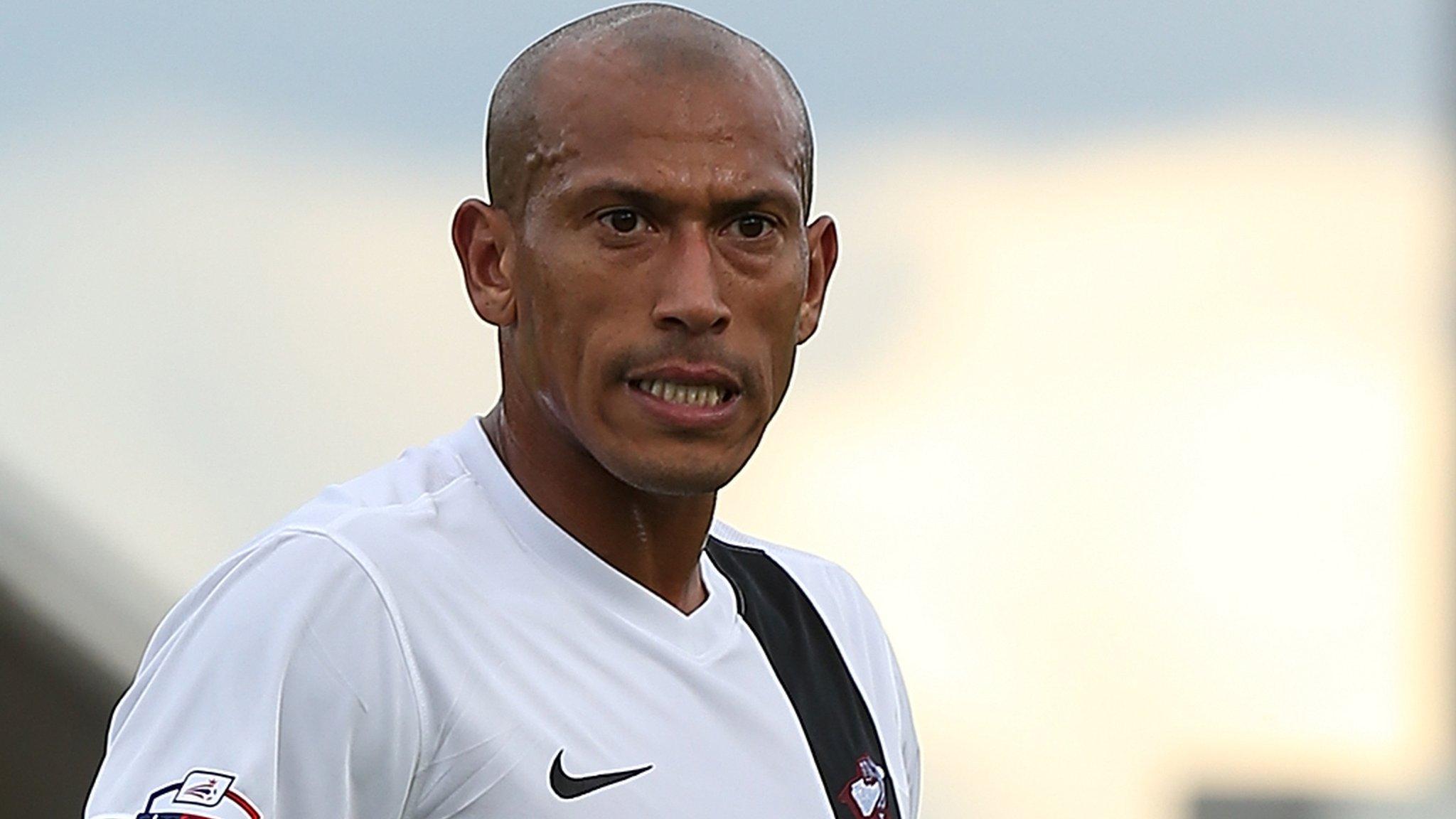Fan threats no worse in Scotland, say Kilmarnock's Kris Boyd and Will Boyle
- Published

Kris Boyd is in his third spell with Kilmarnock
Kilmarnock players Kris Boyd and Will Boyle do not think threats of violence from fans towards players are any worse in Scotland than other countries.
More than a third of the Scottish-based respondents reported such threats - above the average in Fifpro's survey.
"It's pretty alarming," said former Scotland striker Boyd. "It doesn't make for pleasant reading, but it doesn't matter where you play in the world."
Defender Boyle thought there was "no real difference" to his native England.
Fifpro asked 14,000 male players in 54 countries, including five randomly chosen clubs in the Scottish Premiership and a similar number in the Championship, about various aspects of their working conditions.
Only players surveyed in the Democratic Republic of Congo reported a higher incidence of threats of violence from fans on match days.
And PFA Scotland hopes that, by highlighting the issue, supporters will think more about how they treat players.
BBC Scotland talked to the union boss, a fan representative and two players for their reaction.
The fan
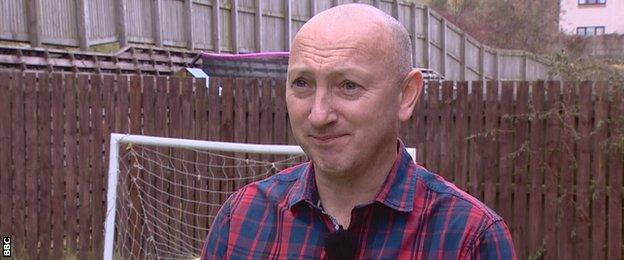
David McDonald runs a popular fans' website
David McDonald, who edits the Pie and Bovril fans' website, was surprised by the findings as he likes to think that players' increased visibility on social media has brought them and the fans closer together than ever before.
"I was quite shocked to be honest," he told BBC Scotland. "I have been watching Scottish football for the best part of 40 years - at lower levels and the Premier League - and I can't honestly believe there are people threatening players with violence on a match day, because I've never heard it.
"There has probably got to be a look at respect for players amongst supporters as a result of the findings.
"On a match day, fans pay their money and like to have a wee shout, but they have to respect that these are people as well and have feelings and obviously some are feeling genuinely threatened."
The players
At 33, Boyd has tasted international football, Old Firm derbies with Rangers, the English Championship with Middlesbrough and Nottingham Forest, the Turkish top-flight with Eskisehirspor and Major League Soccer with Portland Timbers.
"When you're the opposition going into somebody's home venue, you're always going to be subjected to shouts from the crowd," he said.
"It doesn't really bother me, but there will be players who have had racist chants and it will affect them and I can see why it would affect them.
"When the racial abuse and sectarian abuse comes into it then you've got a problem.
"But we are kidding ourselves on if we can sit here and say we are going to change a Rangers-Celtic game."
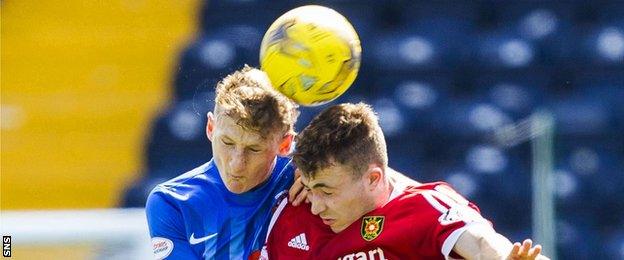
Boyle (left) joined Killie earlier this year
Boyle is new to the Scottish game, the 21-year-old having joined Killie this summer on loan from Huddersfield Town.
"I think football fans are all similar," he said. "They are passionate about the game and they pay their money to come every week and they want to see their team doing well and winning games.
"If they're not happy with the performance, they're going to let you know, so you've got to do your best, you've got to have a thick skin and be able to take the criticism and opinions that people have."
The union boss

Fraser Wishart played for eight Scottish clubs
PFA Scotland chief executive Fraser Wishart admitted that the report did not delve into the reasons why threats of violence were greater in Scotland.
"With any form of abuse, it's very much how it's received, not how it's given - and, if players are feeling that they're unhappy at comments made from the stands then we want the supporters to have a wee think about how they behave," he said.
"The obvious ones are sectarian and racist singing, which are outlawed in any case and are high profile, but it is probably more down to the individuals - the individual at the side of the park who is almost apoplectic with rage and the abuse that comes then becomes personal.
"There is a line where what we call 'banter' oversteps the mark and becomes abuse.
"Supporters are not turning up, crowds are going down and I think this plays a part of it.
"We would welcome the opportunity to speak to the football authorities. We are not often, if at all, asked our opinion on various matters by the governing bodies.
"Do we want supporters punished by the police? Not at all. Do we want clubs to be punished because supporters shout a bit of abuse at players? Not really. We're just trying to change the mindset."
- Published29 November 2016
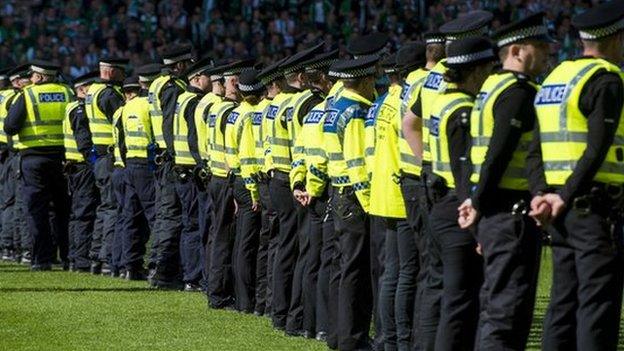
- Published29 November 2016
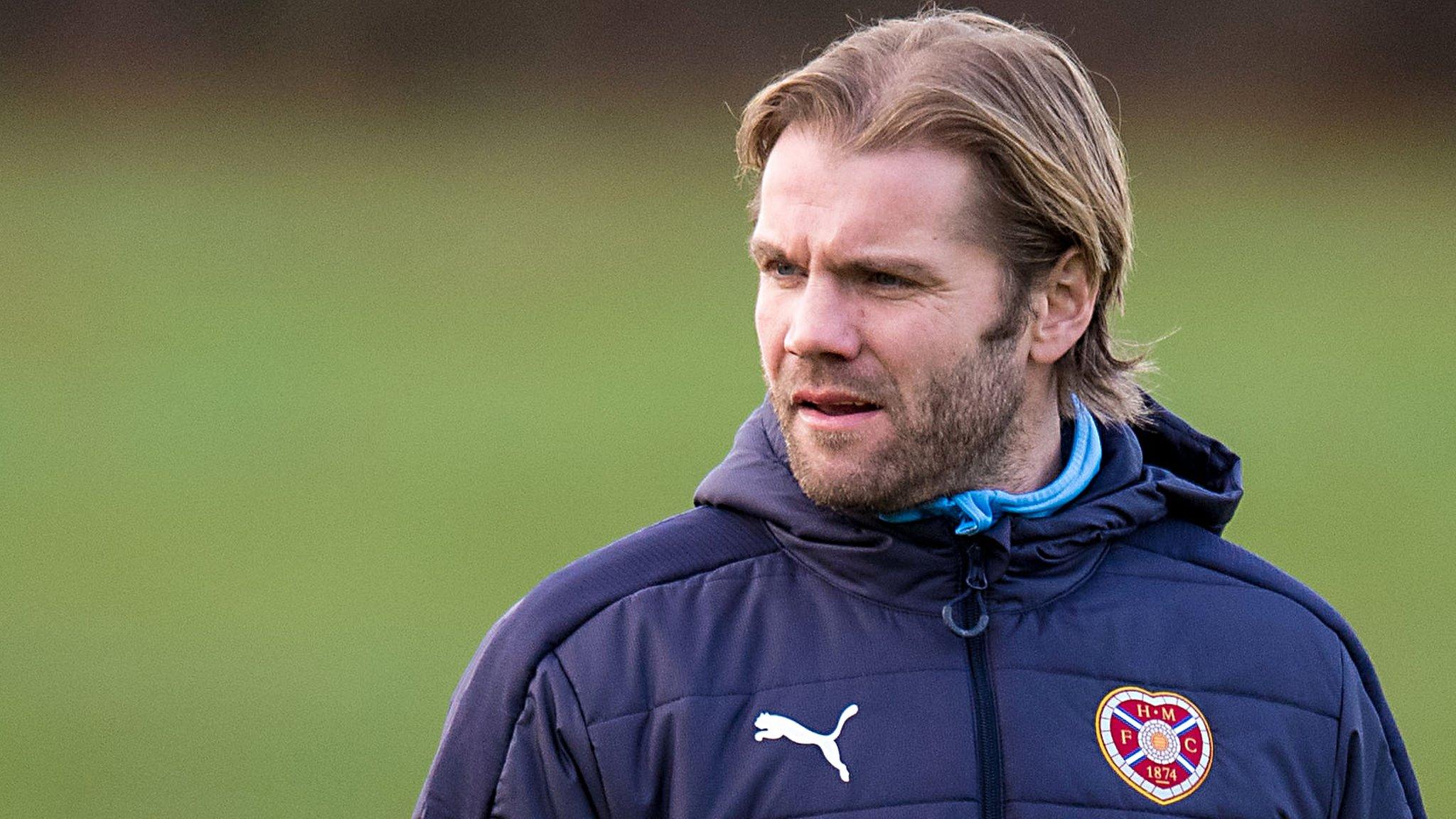
- Published29 November 2016
